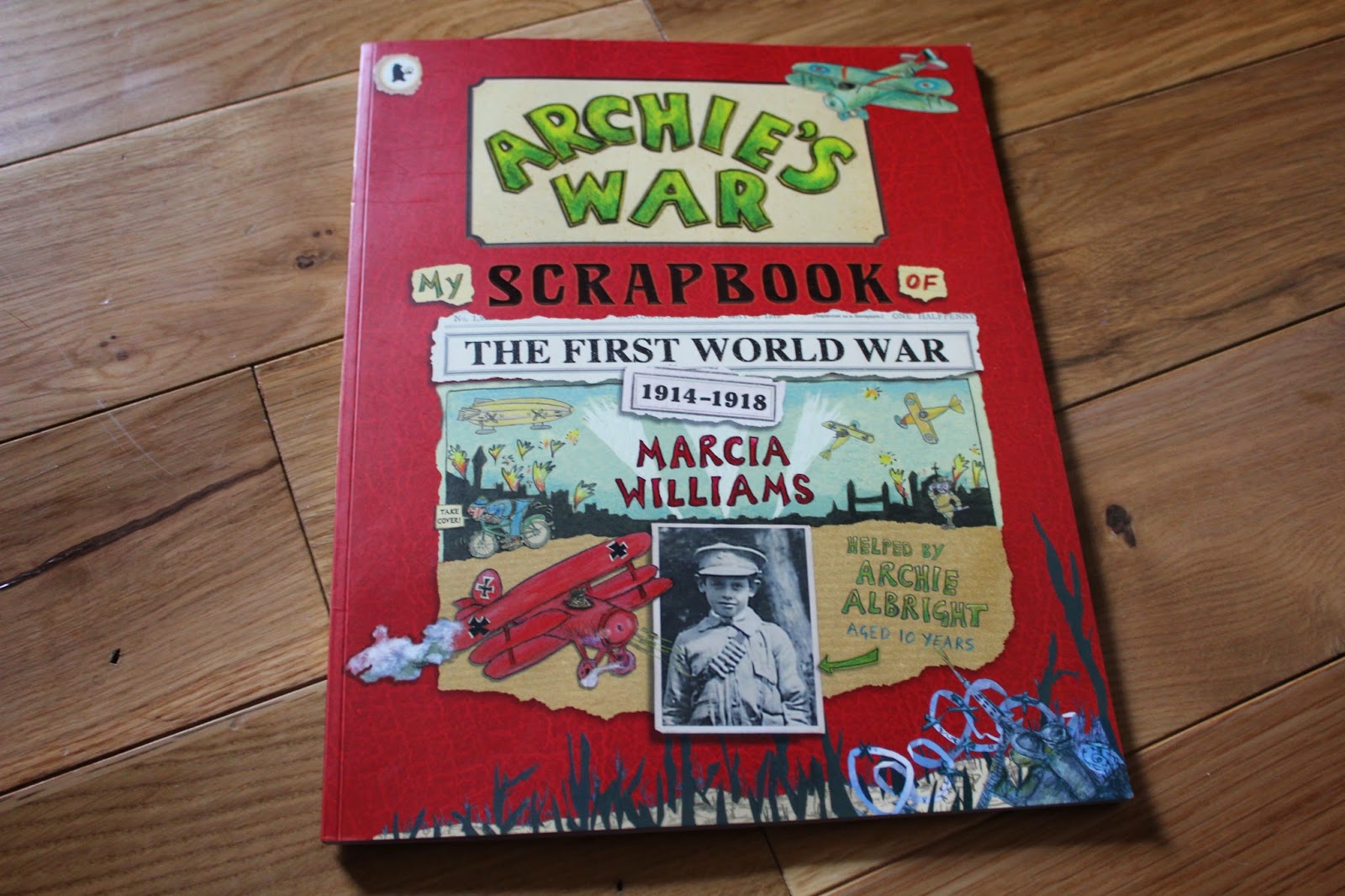Family resources
- Family memories. My husband and I are fairly "elderly" parents to our two younger children and my husband's parents were in their mid-thirties when he was born. This means that one of the children's grandmothers was born within a few years of the First World War. Her father fought in the War and she can tell family stories from that time. Of course, many children of early primary age will have much younger grandparents but there may be great-grandparents who have First World War stories to tell.
- Family diaries. We have two very different diaries from different sides of the family which cover the First World War. One is of a nurse who looked after the War wounded and the other of a man who had sons at the Front. I have been reading one of these to the children. They have been interested in comments about early cars and tractors as well as about the War.
- Family photos.
Local resources
- There are war memorials in almost every parish in the country.
Books
These aren't formal textbooks.
- Archie's War Scrapbook
- The Usborne World War I sticker books were a popular introduction here. There are two: Sticker Dressing: First World War and First World War sticker book.
- Mailing May by Michael O Tunnell. This picture book is set in the US in early 1914 before the start of the War and well before the US entered. However, it does set the scene of the times for younger children even if most children weren't sent on the train as a parcel. This is based on a true story.
- Fly, Cher Ami, Fly by Robert MacKenzie is based on a true story about a carrier pigeon who saved a lost battalion.
- Where the poppies grow by Hilary Robinson and Martin Impey is again suitable for younger children. My five year old loved this book which is written to the same rhyme as This is the house Jack built. The story line covers two friends who grow up together and then go to fight together. During the battle, one saves the life of the other. There is plenty to discuss from this book but it is presented in a gentle way. This would probably be the book that I would choose to use with little ones.
- War Game by Michael Foreman is another picture book but do read before sharing with sensitive children. The book is dedicated to the four dead uncles of the author who died in the First World War and who also share the same names as the young men in the book. The book covers the trenches and the 1914 Christmas Day truce but also ends with the death of one of the young soldiers. A beautiful and thought provoking book.
Poetry
There is, of course, a plethora of First World War poetry.
Particularly suitable for this age group are
- The famous fourth verse of For the fallen.
- Aunties
- In Flanders Fields
Please note that I do not endorse other material on these websites.
- BBC Schools Primary resources has a section on the First World War. This includes detail about everyday life for a child, at the time.
- The Bible Society has interesting pages about Christians during the War.
- World War One Photos has photos, poetry and recordings for songs. Please preview before using with young children.
Other
The Royal British Legion produces an educational pack with DVDs including one with First World War clips. This is free to home educators. Please note that some of the other DVDs are marked as not suitable for young children. The First World War section should also be previewed. We found the DVD clip of the Battle of the Somme was quite disturbing.
Updated 23rd October 2014.
Updated 23rd October 2014.
Please do let me know about other resources that you have used to explain the First World War to younger children.
If you enjoyed this post you may like to follow Delivering Grace by Google Friend Connect, G+,Facebook, Pinterest or e-mail.







Thank you, this is very helpful. We will be looking at the First World War over the next few weeks.
ReplyDeletethat was an informative and helpful post. I will pin it to my history board. :)
ReplyDeleteGreat resources! We will be covering this as well. My oldest at home is nine, with a three and four year old behind her. Our main academics are focused toward her age level, and all kinds of war is on the agenda this year. (Industrial Era through present day) I appreciate having these resources. Thank you for writing about this topic!
ReplyDeleteThank you, Tina. I think that your little ones may like the "Where poppies grow" picture book.
DeleteThese are some great ideas for young kids! I also like "Rilla of Ingleside" (it's the last book in the Anne of Green Gables series) as an account of World War 1. It's probably more appropriate for kids ages 10 and up but it's a interesting "first hand account" (though it's about fictional people) of what it was like to live through the Great War.
ReplyDeleteThese look awesome!! I haven't even started WWI yet... I've been leaving that to my husband. I'm definitely going to look these over, though, thank you!
ReplyDeleteI just finished a study on WWI with my kids (a bit older than yours) and found it much more difficult to come up with appropriate resources for WWI compared to WWII (which we're doing now). Did you find the same thing in your searches?
ReplyDeleteYes, I agree entirely. We haven't studied WW2 yet but there is a whole long list of resources that we could use including picture books, chapter books, fact and fiction. Finding anything around WW1 has been much more difficult.
Delete